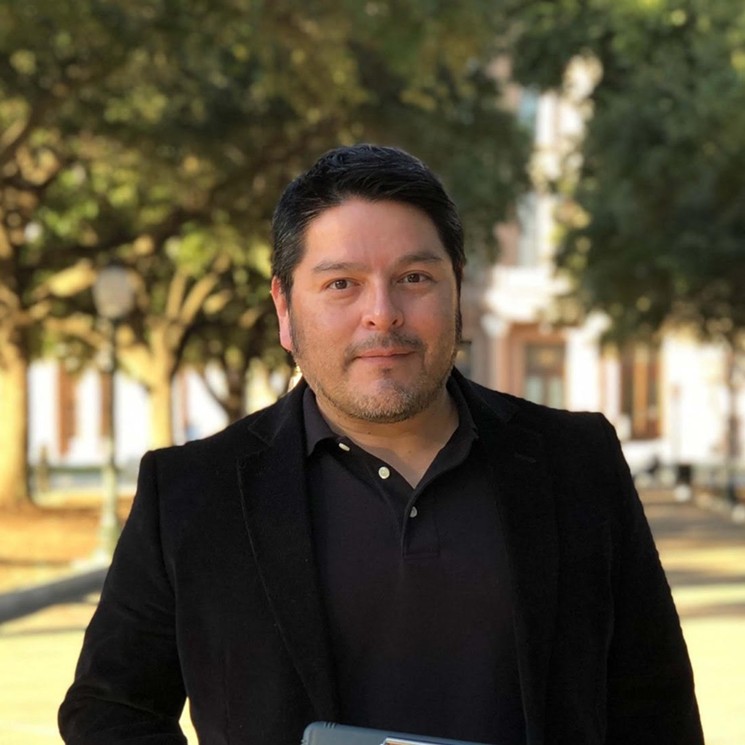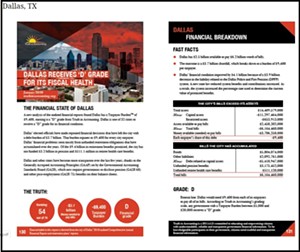Are you a socialist if you don’t want families to get blown up in gas well explosions? Is it socialism to try to get your city to live within its means?
Clearly, the term socialist will get a stiff workout between now and November. I got a wake-up earlier this week when I wrote about endorsements The Dallas Morning News is and is not making in the upcoming primary and general elections.
Bernie Sanders calls himself a socialist, so that’s up to him to defend. But what do you say when a person states specifically and intentionally that he is not a socialist, explains in some detail why he is not a socialist, but the newspaper calls him one anyway?
In my column Monday I pointed out that the News had given a naughty little pinch to Mat Pruneda, a candidate in the Democratic primary for the 26th congressional seat in Denton County. The paper said, “We think he’s too much of a socialist to make a serious run for the district, but we like his enthusiasm.”
Turns out it was more than a pinch. Pruneda is a member of the city of Denton Planning and Zoning Commission, where he has campaigned for greater distances between gas wells and homes. He saw my column and wrote to me:
“The DMN asked me on three separate occasions if I was a socialist. My answer was always no. (I can forward you an email.)
“In fact, I work in regulatory reporting to the Federal Reserve Board. I do support Medicare for All because I have a child with a preexisting condition and as premiums have gone up about 500% in the last 20+ years, I consider this a crisis.
“But as I’ve explained to the DMN, wanting strong social programs and a restoration of collective bargaining is not ‘socialism.’ I do not believe the government should control the means of production.
“BUT, I do understand it is the job of a conservative newspaper to get in a parting shot at progressive candidates. So, they endorse you, then scare people by saying you’re too far left and a socialist.”
When the newspaper calls him a socialist in spite of his explaining that he’s not one, is the newspaper lying? Or, more likely, is the problem that we do not agree on what the word means? Especially when applied to local politics, I think the word can mean all kinds of things to different people.
Most local issues feel pretty non-ideological. In strictly personal terms — nothing to do with my work as a journalist, just what I think when I’m at home on my own time — my own big issues right now are potholes, drainage and people who keep pet pigs. I wish I were clever enough to design a banner for potholes, drainage and pet pigs. I would fly it from the front porch.
But potholes, drainage and pigs are not ideological. Or are they? Peter Simek had an interesting piece on D Magazine‘s FrontBurner blog recently talking about a movement for a thing called “20-minute neighborhoods” — basically neighborhoods where you can get everything you need to live your life in a 20-minute walk from home.
I don’t know about that. I have a few things in my neighborhood I’d like to be at least 30 minutes away from, oink-oink. But one line in Simek’s piece rang a bell on my other issues:
“We can’t afford to fix the streets?” he asks rhetorically. “That’s because our low-density development model means we have more street surface area than tax base …”
That’s a real issue. It’s about what the city can and cannot afford to do with the resources it has in hand. And it has a lot to do with who does and does not want the city to live within those resources and why.
In recent years the term “progressive” has become sort of a stand-in for “socialist” in local politics, especially when used as a pejorative by people like the editorial writers at the Morning News. For example, it’s used to describe people who have opposed the big vanity public works projects like the faux suspension bridges over the Trinity River and the now defunct, we hope, idea of building an unneeded new expressway on top of the Trinity River.
In the last mayoral and City Council election, the city’s downtown business leadership derided the so-called progressives for thinking small, for focusing on things like potholes and drainage, for example, instead of their own “big vision,” which included the decorative bridges and extra freeways.
So who, exactly, is the sharp-pencil conservative clutching the purse strings in this picture, and who is the flibbertigibbet socialist or progressive? Given that the downtown business interests have been able to maintain uninterrupted control of the purse strings for the last 30 years or so, perhaps we should measure them by their outcomes.
Every year, a national group of accountants and academics called Truth in Accounting publishes a report it calls the “Financial State of the Cities” in which it totes up all of the debt incurred by the nation’s 75 biggest cities, including a lot of debt some cities try to keep off their public books and out of the public eye. That includes unfunded pension obligations, borrowings by so-called “enterprise funds” like water departments — anything and everything the city owes in the name of its citizens.
For a city run for decades by so-called conservatives, Dallas looks a little too much like Bernie Madoff. The report gives Dallas an overall financial grade of D for having a municipal debt of $9,400 per taxpayer.
What they mean is this: If the city’s entire debt had to be paid off tomorrow and City Hall sold every penny worth of assets to its name, the amount of debt left unfunded by the sale of those assets would be $9,400 per citizen.
Irvine, California, is the strongest city in the country financially, according to the 2020 State of the Cities report, with a surplus of $4,100 per taxpayer. Washington, D.C., is second, with a surplus of $3,500. Plano is No. 5, with a surplus of $2,800. San Antonio is No. 17, with a debt of $1,100. Dallas is No. 54 out of 75.
In other words, the fiscal track record amassed by the downtown cabal running the city for the last 30 years stinks. But these are the same people who call themselves conservatives and label anybody who questions them a socialist or a progressive, meaning somebody who can’t be trusted with the money. But trusted by whom?
A think-tank with a clear line of sight into this entire phenomenon is an online nonprofit called Strong Towns, started by engineer and land-use planner Charles L. Marohn Jr. The mantra of Strong Towns is that local governments pile up indebtedness for infrastructure without doing the math.
What will the community get back for its investment? What’s it going to cost the community to maintain it over time? Too often the answer here, from the local cabal and their allies in the permanent bureaucracy at City Hall, has been, “Who cares?”

Mat Pruneda
Tamsyn Price
The cabal doesn’t care, as long as its members get what they want in massive taxpayer subsidies for their own ventures, either in the form of public works projects designed entirely to enhance the value of their own private land holdings or cash in a big bag in the form of tax breaks.
Marohn writes knowingly about the other half of the team — the city managers who sign the city up for big state and federal subsidies that require substantial local investment. From City Hall’s point of view, it’s a win-win if a project keeps City Hall jobs going and makes the cabal happy. But that ignores the very important downside of opportunity cost.
Taxpayers wasted, threw away, lost, dumped in the toilet $110 million of their own money for the failed Margaret McDermott Bridge over the Trinity River, completed and slated to open four years ago, now barricaded, never opened for a minute because the bridge is unsafe even for bicycle traffic.
Former City Council member Philip Kingston pointed out two years ago $110 million would have paid for a conversion to a new digital traffic signal technology that would have improved traffic flow citywide.
Marohn’s point at Strong Towns is that every penny a city spends on Project A is a penny taken away from Project B. And every penny for Project A also is x-many pennies of future taxpayer expense to keep up and maintain Project A.
So who does that accounting? And how in the world can anyone argue that the people who want to do that accounting are the socialists while the people who sneer at counting the pennies are conservatives? How does that add up?
It’s a question with obvious ramifications in national politics right now. New York Times columnist and economist Paul Krugman said this week, “Trump inherited a $600 billion deficit; he’s blown that up to $1 trillion — and hardly a single Republican in Congress has expressed dismay.”
The question has true significance here at the local level. I think it goes back to the point Simek made on FrontBurner and, yes, also to my own personal issues with the possible exception of the pig.
How is it socialist to carefully account the community’s resources and make sure they are being responsibly marshaled to meet the community’s needs? I keep thinking back to my Grandma Alice in Wichita, Kansas, when it was called being civic-minded.
And why are these people who call themselves conservatives so hell-bent to keep everybody else away from the coffers? That just makes me think back to the bank robber Willie Sutton, who supposedly said he robbed banks because “that’s where the money is.”
I can live with Wilbur (the pig’s name). Now that I have written about him and taken his photo, I’m probably getting attached. Wilbur happens to be my own middle name, so … you know. But I truly wonder how much longer the string can run on these so-called conservatives.



